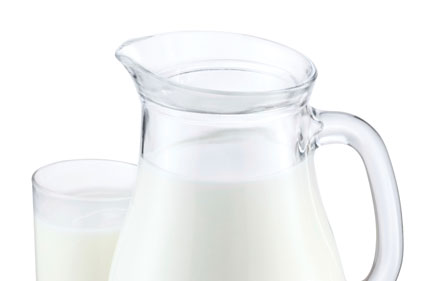In the study of 1,000 adults, U.S. and Australian researchers found those who regularly have dairy products, such as milk, cheese and yogurt, score better on tests of mental ability than people who never or rarely consume dairy.
Although the research, published in the International Dairy Journal, needs follow-up, as it did not conclusively establish the link between dairy and fatty diets and brain power, it highlights an intriguing line of research.
It follows another U.S. study, involving 104 pensioners, where scientists found older people with higher levels of beneficial fats in their blood had less brain shrinkage typical of Alzheimer’s disease. These beneficial fats -- omega-3 essential fats -- are found in foods such as oily fish. The research, published in Neurology, the journal of the American Academy of Neurology, is key, as it measured the levels of different fats in people’s blood, rather than simply relying on their reports of what they tended regularly to eat.
It is now well established from brain-tissue studies that mental functions depend heavily on a good supply of fat.
Our brain is composed of 60% fat. The brain cells are insulated by sheaths of myelin composed of 75% fat. This myelin fat needs to be replaced constantly.
Myelin sheaths are vital to the cells’ ability to communicate. It is thought the more myelin, the more quickly new skills are learned.
Significantly, in a disease such as multiple sclerosis, the myelin sheaths are damaged, affecting how messages are transmitted in the brain and causing symptoms such as numbness and paralysis.
This research on the brain confronts the common view about the dangers of dietary fat. So strong is the negative message that studies show up to 40% of all U.K. adults try to avoid fat for health reasons. However, in fact, the benefits of avoiding fats might not be so clear-cut.
For example, a study of older people in the British Medical Journal found those on low-cholesterol diets have a far higher rate of stroke, possibly because cholesterol seems to have a protective effect in mature brain linings.
Meanwhile, a California University study published in The Lancet reports a link between low-fat diets and increased incidence of depression among men aged over 70.
It suggests this may be because low cholesterol levels shorten the amount of time the feel-good hormone serotonin is effective.
Studies also show fat in diets may help the brain to suppress harmful behavioral impulses: monkeys have been found to become abnormally aggressive when put on low-fat diets, according to a report in the journal Psychosomatic Medicine.
When it comes to the benefits of dairy on the brain, more research is needed, but there is a large body of research to show that omega-3 and omega-6 fats are vital for the brain.
From the March 8, 2012, Prepared Foods' Daily News.



